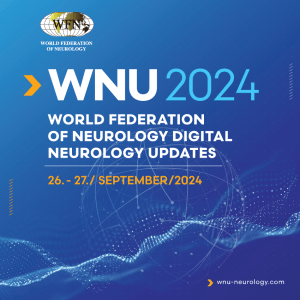
Professionals working with patients with brain injury and disease travelled from all over the country to attend our 5th UK National Neuropsychiatry Conference. This was held at Stoke-on-Trent Moat House on the 12th March 2015. The conference which was fully subscribed provided a platform for academics, clinicians and service users to enhance cross-fertilisation of thinking. The conference was supported by a number of statutory, private and voluntary organisations and received excellent feedback.
Following introductions from Dr George El-Nimr, event organiser, Dr John Murphy, Associate Specialist in Psychiatry and Honorary Lecturer gave his perspective as a former patient who survived a severe head injury back in the 80’s. Dr Murphy talked about his rocky journey and the success he achieved through hard work and support from family and relevant services. Dr Murphy gave a first-hand experience of specific symptoms such as hemineglect and impaired social emotions. He explained to the conference delegates how he was eventually able to return to his role as a clinician and educator. Similarly, Sam Dawson who works as an administrator for the NHS offered further insight into what it actually means to look after someone with a brain disease that is increasingly robbing them of their personality and independence.
Dr El-Nimr then gave an overview on brain and behaviour issues. He particularly explained the current models of studying brain, mind and consciousness and how thinking around those issues has evolved over the years. Dr El-Nimr presented a number of curious phenomena related to body image, cognitive capabilities and mystical experiences, some of which could be difficult to explain within the traditional brain/mind dichotomy. Dr El-Nimr explored puzzling questions such as: “do we need our eyes to see?”, “can our somatosensory cortex be stimulated through stimulation received from other bodies or even the environment?”, “how can brain injury be associated with gaining new skills?”.
Dr Barrett, retired Consultant Neuropsychiatrist and the founder of North Staffordshire Neuropsychiatry Services, gave an inspiring talk on the history of psychosurgeries. 2015 marks the 80th anniversary of the first “prefrontal leucotomy”, the surgical destruction of the brain tissue as a treatment for psychiatric disorders. Dr Barrett highlighted that by 1965 an estimate of 70,000 patients, worldwide, had gone through similar procedures. In his presentation, Dr Barrett examined cases, events and the major players in an attempt to understand how psychosurgery became a mainstream procedure and what lessons could be learnt.
Dr Salman Haider, Research Fellow in Neurology, presented a research perspective on Huntington’s disease. It was highlighted that the genetic predictability of HD provides an opportunity for early therapeutic intervention many years before overt symptom onset and at a time when reversal or prevention of neural dysfunction may still be possible. It was clear that understanding of HD pathogenesis is evolving, and there are a number of candidate therapeutics with potential disease modifying effects that are currently being tested. New data to understand the neurobiology of the preclinical phase of neurodegeneration in HD was presented along with an overview of recent advances, working towards HD gene silencing in humans.
Dr Alex Ball, Consultant in Rehabilitation Medicine in North Staffordshire, then delivered a talk on how comprehensive services for brain injury can be achieved. Dr Ball highlighted the fact that in order to achieve the best possible outcomes for patients, tailored intervention should begin as early as possible. The redesign of major trauma services in England has brought about welcome changes to acute phase management in some centres but as yet has little impact on longer term community provision and has not benefited those with non-traumatic brain injuries. The challenges around writing a business case were highlighted given the fact that the financial benefits are not immediate. Evidence of the effectiveness of comprehensive, multidisciplinary brain injury management does exist but this is yet to be fully translated into practice. Issues around services for patients with severe disability following brain injury were also discussed. This was particularly highlighted by a carer who contributed towards Dr Ball’s session discussing practical difficulties in looking after loved ones with such a severe degree of disability.
The conference offered a selection of workshops for delegates to choose from. A workshop run by Dr Selsick, Consultant Neuropsychiatrist and Lead Consultant Psychiatrist of the Insomnia Clinic at the Royal London Hospital, emphasised that clinicians may feel that they cannot manage sleep disorders without specialist diagnostic equipment found in sleep clinics. However, a good history was thought to be critical to reaching an accurate diagnosis of most sleep disorders. The workshop looked at a few sleep disorders that are commonly encountered, but frequently missed in general medical and psychiatric practice.
A session on Non-motor Manifestations of Parkinson’s disease was run by Dr Sridharan, Consultant Neuropsychiatrist in North Staffordshire. In the context of that workshop, the fact that non-motor symptoms of Parkinson’s disease are poorly recognised, often misunderstood and left untreated was highlighted. It was also acknowledged that non-motor symptoms can manifest from the pre-motor phase of the illness and can often complicate the advanced phase. The impact on quality of life and prognosis was discussed. Various assessment and management issues were also explained.
Mr Feery, Barrister, ran a workshop on Brain Disease in the Court Room. The workshop explored some of the medicolegal issues that are involved in the context of brain injury and related measures. Issues related to the Mental Health Act and Mental Capacity Act with particular relevance to brain damage were discussed with conference delegates and their questions were addressed accordingly.
A workshop on Epilepsy and Behaviour was run by Dr Bagary, Consultant Neuropsychiatrist from Birmingham. Dr Bagary talked about various behavioural changes that can take place in the context of epilepsy. How those behaviours can be of diagnostic value along with management issues were also discussed.
Dr Mike Dilley, Consultant Neuropsychiatrist, gave a key note talk on Brain damage and challenging behaviour. The emphasis of the talk was on pharmacological management issues. Dr Dilley presented current evidence in relation to agitation, aggression and impulsivity amongst other related symptoms in the context of brain injury. Management of acute and chronic phases were also discussed and relevant advice was given in relation to clinical management. Dr Dilley highlighted the fact that challenging behaviour frequently presents as a consequence of traumatic brain injury. Commonly, more clinical attention is paid to agitation and aggression, but there are a range of behaviours that can be difficult to manage in people with traumatic brain injury. Dr Dilly reviewed a range of challenging behaviours commonly seen after traumatic brain injury and also touched on the relevance of psychosocial approaches to management in this respect.
Professor Cavanna, Consultant in Behavioural Neurology, gave a talk on Tourette’s Syndrome and other tic disorders. Professor Cavanna discussed current diagnostic criteria and management issues. The fact that up to 90% of patients with Tourette’s syndrome present with psychiatric disorders, including OCD, ADHD, impulsivity, anxiety and depression was highlighted. Disentangling the effects of motion and emotion can be challenging and the role of the neuropsychiatrist was thought to be crucial in order to fine tune treatment interventions and improve patients’ health related quality of life.
Conference presentations and videos were made available for delegates after the events.
Key messages:
- It is important for science and humanities to work together to enhance a better understanding of the brain / mind problem.
- Neurosurgery continues to have a place in managing specific mental health problems.
- There are a number of candidate therapeutics with potential disease modifying effects that are currently being tested in Huntington’s disease.
- Evidence of the effectiveness of comprehensive, multidisciplinary brain injury management does exist but this is yet to be fully translated into practice.
- Taking a good history is critical to reaching an accurate diagnosis of most sleep disorders, especially in the absence of sophisticated sleep equipment.
- Non-motor symptoms of Parkinson’s disease tend to be poorly recognised, often misunderstood and left untreated.
- Good grasp of the Mental Capacity Act, Mental Health Act and other related legislation is essential when managing patients with brain damage.
- Understanding behavioural changes in patients with epilepsy can be of significant diagnostic value.
- Challenging behaviour frequently presents as a consequence of traumatic brain injury and requires multidisciplinary bio-psycho-social management approach.
- Disentangling the effects of motion and emotion in Tourette Syndrome can be challenging and the role of the Neuropsychiatrist is crucial to fine tune the management of motor and emotional aspects.
ACNR 2015;15(4):22-23. Online 19/09/2015

